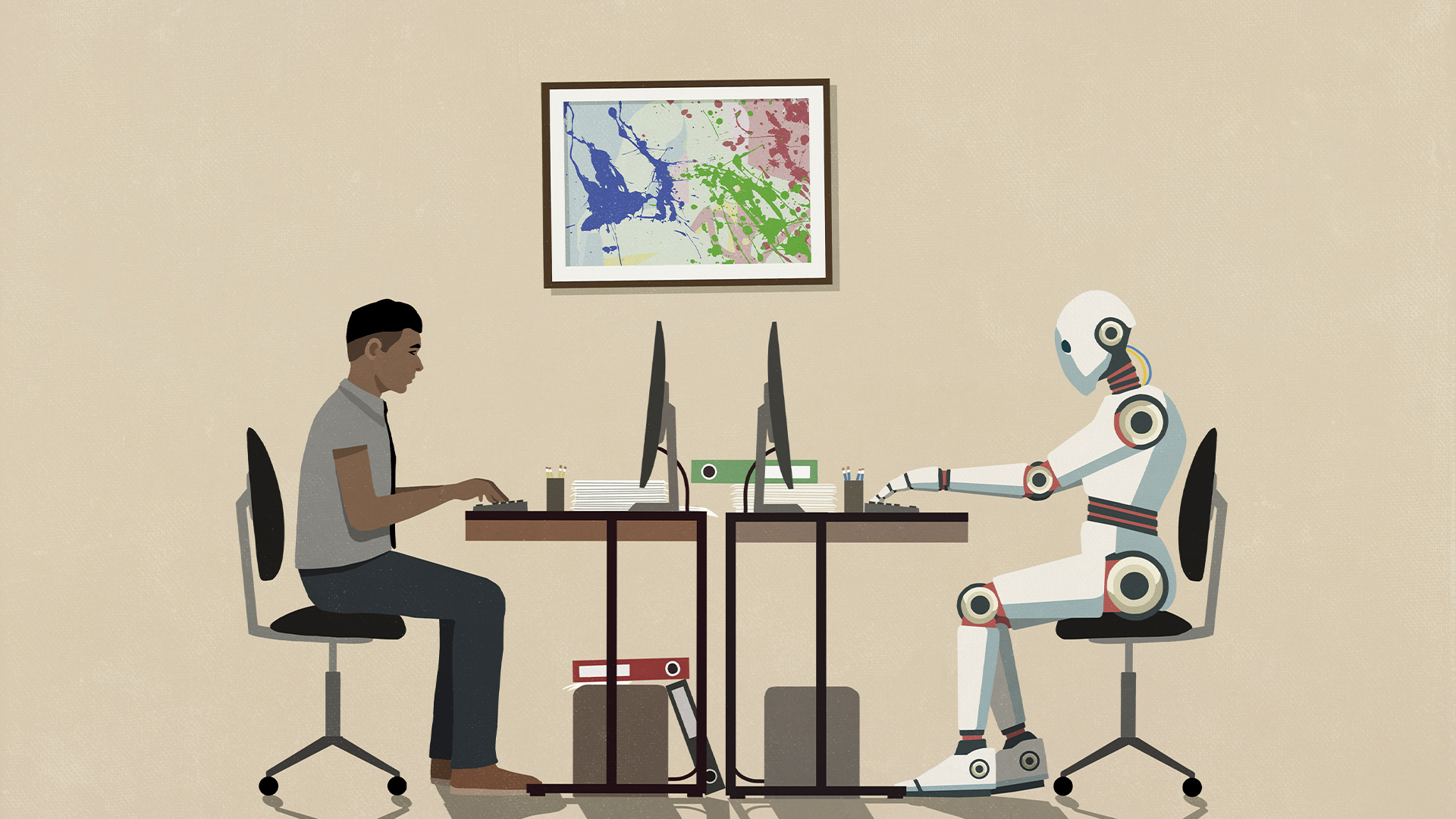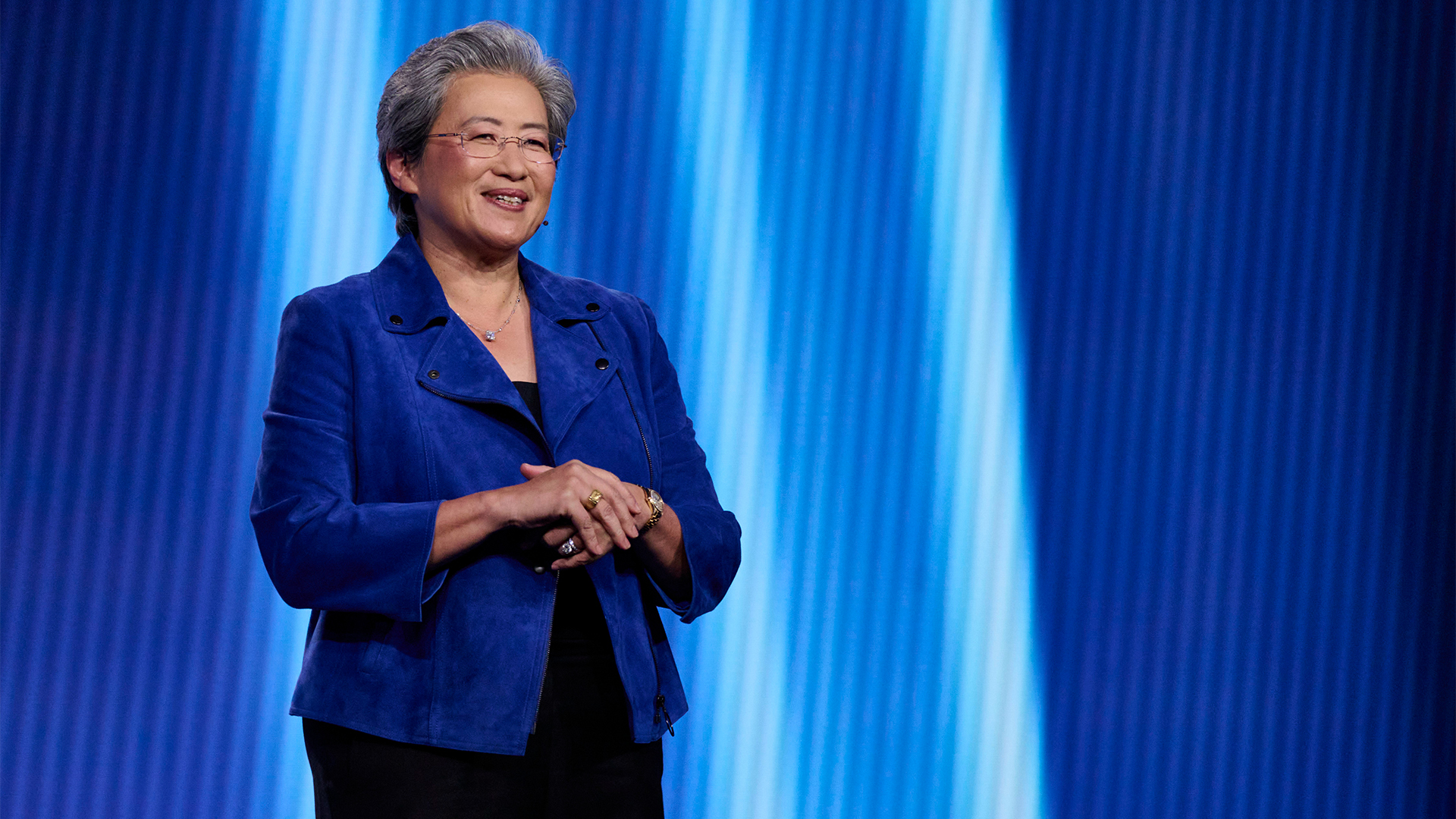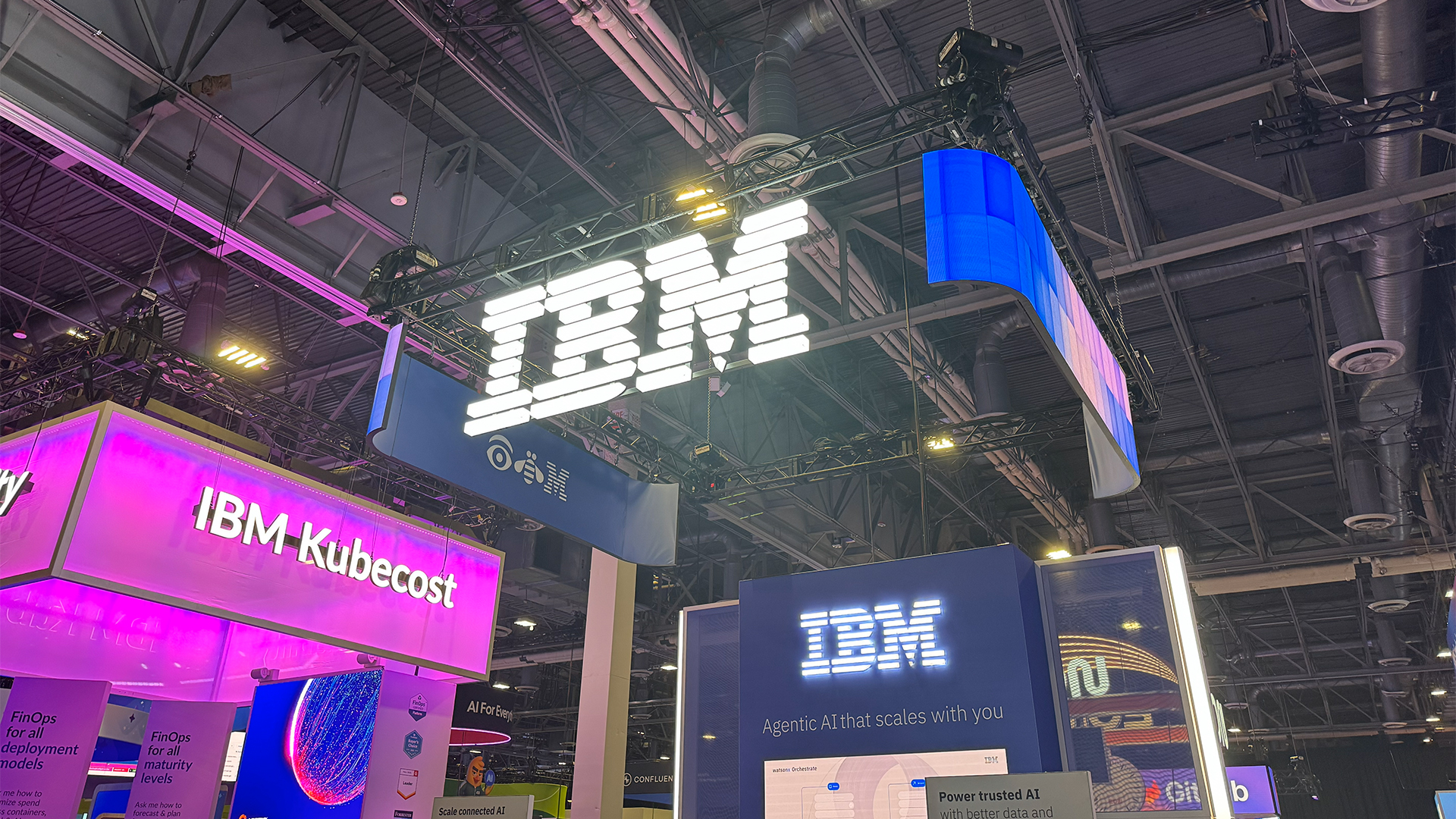Employee ‘task crafting' could be the key to getting the most out of AI
Tweaking roles to make the most of AI makes you more engaged at work


AI “task crafting” improves workforce motivation and productivity, new research suggests, but only providing workers are allowed to do it themselves.
Workers who redesign their roles to incorporate AI are more highly motivated and engaged with their jobs, according to a new study from researchers at tech upskilling platform Multiverse.
The survey found “employee-AI collaboration” and work engagement are highly correlated, and can deliver marked gains for companies striving for a solid return on investment (ROI).
Researchers defined AI collaboration as the extent to which the technology is embedded within core work cycles like problem-solving, drafting, and evaluation.
Notably, those who exhibit higher levels of AI adoption by this measure tend to be more dedicated and immersed in their roles, and thus score higher on employee engagement.
This positive link, Multiverse said, comes down to one key behavior: task crafting.
So what does this new work practice entail?
Sign up today and you will receive a free copy of our Future Focus 2025 report - the leading guidance on AI, cybersecurity and other IT challenges as per 700+ senior executives
Task crafting and the productivity benefits
Task crafting involves taking proactive steps to alter the scope, number, or type of tasks that make up an individual worker’s role. Simply put, this involves using AI tools to reduce manual toil and free them up to focus on more important tasks.
The more task crafting a worker carries out, the greater the link between AI adoption and efficiency gains at both the individual and organizational level.
Those who engaged in less task crafting were found to be far less efficient, productive, and engaged in their roles.
“This research moves the conversation beyond AI as a tool solely for automation and efficiency. Our findings suggest AI can be a powerful job resource that directly fuels engagement - but not automatically," said Barry Goulding, organizational psychologist at Multiverse.
"The benefits are activated by giving employees agency to shape their role around AI. This means they can transform their work from a collection of demands into a series of engaging challenges."
Engaged workforces create profitable companies
According to Gallup’s latest employee engagement report, organizations scoring in the top quartile for employee engagement have 23% higher profitability, 18% higher sales, and 78% lower absenteeism than those in the bottom quartile.
"For business leaders, this is a playbook for maximising the return on their AI investments," said Laura Ball, senior director of learning science at Multiverse.
“Companies must invest in a new kind of training that equips employees with the skills to become 'AI job crafters'. That means fostering proactivity, strategic thinking, and giving them the confidence to reimagine their roles - rather than using AI to create 'slop' at greater speed than ever."
This isn’t the first study to highlight the link between AI and employee engagement. A similar report from Deloitte last year found using the technology to simplify and make jobs easier for employees can boost satisfaction and improve engagement.
"The focus for many organizations has shifted from mere AI adoption and process automation to maximising its potential for transformative business outcomes, empowering employees, and unlocking societal opportunities," the report stated.
"In a recent global Deloitte survey, only a small minority - 30% - of organizations expressed a strong preference for automating as many tasks as possible. This shift in perspective highlights how AI is increasingly seen as a tool to handle repetitive tasks, freeing up time for employees to focus on what matters most."
Make sure to follow ITPro on Google News to keep tabs on all our latest news, analysis, and reviews.
MORE FROM ITPRO
- AI is boosting personal productivity but slowing down teams
- AI was touted as a game changer for productivity – but employees are still saddled with growing workloads
- Microsoft exec touts benefits of AI productivity gains
Emma Woollacott is a freelance journalist writing for publications including the BBC, Private Eye, Forbes, Raconteur and specialist technology titles.
-
 26% of privacy professionals are bracing for a breach this year
26% of privacy professionals are bracing for a breach this yearNews Overworked, underfunded privacy teams are being left hung out to dry by executives
-
 What role does automation play when it comes to IT service management?
What role does automation play when it comes to IT service management?Supported Content ITSM will be a familiar element of many IT departments, but a changing tech landscape requires a new strategy
-
 Companies continue to splash out on AI, despite disillusionment with the technology
Companies continue to splash out on AI, despite disillusionment with the technologyNews Worldwide spending on AI will hit $2.5 trillion in 2026, according to Gartner, despite IT leaders wallowing in the "Trough of Disillusionment" – and spending will surge again next year.
-
 A new study claims AI will destroy 10.4 million roles in the US by 2030, more than the number of jobs lost in the Great Recession – but analysts still insist there won’t be a ‘jobs apocalypse’
A new study claims AI will destroy 10.4 million roles in the US by 2030, more than the number of jobs lost in the Great Recession – but analysts still insist there won’t be a ‘jobs apocalypse’News A frantic push to automate roles with AI could come back to haunt many enterprises, according to Forrester
-
 Businesses aren't laying off staff because of AI, they're using it as an excuse to distract from 'weak demand or excessive hiring'
Businesses aren't laying off staff because of AI, they're using it as an excuse to distract from 'weak demand or excessive hiring'News It's sexier to say AI caused redundancies than it is to admit the economy is bad or overhiring has happened
-
 Lisa Su says AI is changing AMD’s hiring strategy – but not for the reason you might think
Lisa Su says AI is changing AMD’s hiring strategy – but not for the reason you might thinkNews AMD CEO Lisa Su has revealed AI is directly influencing recruitment practices at the chip maker but, unlike some tech firms, it’s led to increased headcount.
-
 Accenture acquires Faculty, poaches CEO in bid to drive client AI adoption
Accenture acquires Faculty, poaches CEO in bid to drive client AI adoptionNews The Faculty acquisition will help Accenture streamline AI adoption processes
-
 Productivity gains on the menu as CFOs target bullish tech spending in 2026
Productivity gains on the menu as CFOs target bullish tech spending in 2026News Findings from Deloitte’s Q4 CFO Survey show 59% of firms have now changed their tune on the potential performance improvements unlocked by AI.
-
 Global IT spending set to hit a 30-year high by end of 2025
Global IT spending set to hit a 30-year high by end of 2025News Spending on hardware, software and IT services is growing faster than it has since 1996
-
 IBM’s Confluent acquisition will give it a ‘competitive edge’ and supercharge its AI credentials
IBM’s Confluent acquisition will give it a ‘competitive edge’ and supercharge its AI credentialsAnalysis IBM described Confluent as a “natural fit” for its hybrid cloud and AI strategy, enabling “end-to-end integration of applications, analytics, data systems and AI agents”.
